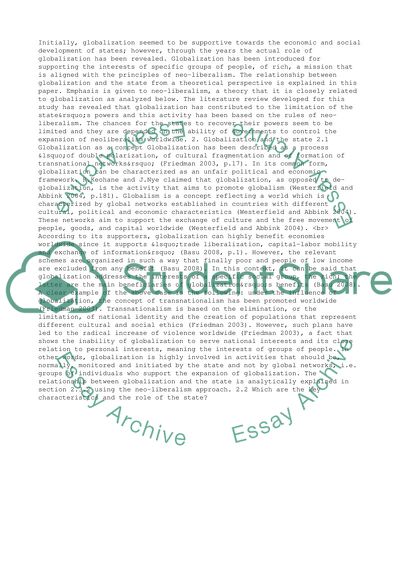Cite this document
(“Globalisation and the State. Discuss Essay Example | Topics and Well Written Essays - 1750 words”, n.d.)
Retrieved from https://studentshare.org/business/1488771-ypglobalisation-and-the-state-discussy
Retrieved from https://studentshare.org/business/1488771-ypglobalisation-and-the-state-discussy
(Globalisation and the State. Discuss Essay Example | Topics and Well Written Essays - 1750 Words)
https://studentshare.org/business/1488771-ypglobalisation-and-the-state-discussy.
https://studentshare.org/business/1488771-ypglobalisation-and-the-state-discussy.
“Globalisation and the State. Discuss Essay Example | Topics and Well Written Essays - 1750 Words”, n.d. https://studentshare.org/business/1488771-ypglobalisation-and-the-state-discussy.


